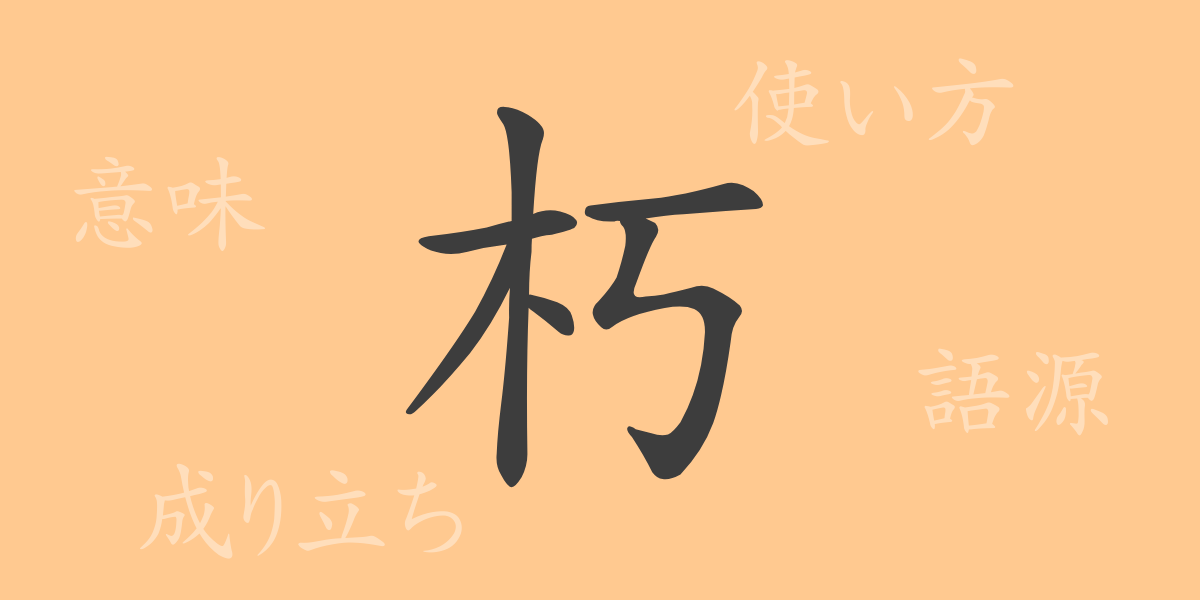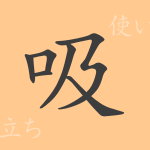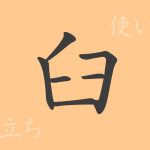As time passes, all things are destined to change and eventually decay. The Japanese kanji “朽” (くちる, kuchiru) embodies this natural principle. This single character holds profound meaning and plays an important role in the Japanese language. Let’s delve into the world of “朽” and uncover its charm.
Origin of 朽 (くちる, kuchiru)
The kanji “朽” (くちる, kuchiru) is believed to have originated from an ancient Chinese pictograph that depicts the decay of wood. This character was born in ancient China, symbolizing the breakdown of wood from its roots, illustrating how things deteriorate and lose their original form over time. Through a long history, this kanji was transmitted to Japan and became integrated into the Japanese culture and language.
Meaning and Usage of 朽 (くちる, kuchiru)
The kanji “朽” (くちる, kuchiru) means “to rot,” “to crumble,” or “to decay.” It is often used to describe the rotting of wood, but it can also be used metaphorically to refer to other things. For example, the expression “朽ち果てる” (くちはてる, kuchihateru) means to decay completely or for something to lose its value entirely.
Reading, Stroke Count, and Radical of 朽 (くちる, kuchiru)
How is the kanji “朽” (くちる, kuchiru) read in Japanese, and what are its components?
- Reading: The on-yomi (Chinese reading) is “キュウ” (kyuu), and the kun-yomi (Japanese reading) is “くちる” (kuchiru).
- Stroke count: “朽” consists of 6 strokes.
- Radical: The radical is “木” (き, ki), which indicates that this kanji is related to wood.
Idioms, Proverbs, and Expressions Using 朽 (くちる, kuchiru)
Idioms, proverbs, and expressions that include “朽” (くちる, kuchiru) are frequently used in daily life to symbolize its meanings. Here are some examples:
- 朽木 (くちき, kuchiki): Rotten wood that is unusable. Metaphorically, it can refer to something or someone useless.
- 朽ちる (くちる, kuchiru): To rot and lose its original form. It can also refer to someone’s reputation fading away.
- 朽ち果てる (くちはてる, kuchihateru): To decay completely, leaving nothing behind. It is also used to describe the end of something.
- 朽ちない (くちない, kuchinai): To not rot, meaning to remain forever. It is used to describe something valuable that lasts a long time.
Summary of 朽 (くちる, kuchiru)
The kanji “朽” (くちる, kuchiru) serves as a symbol of natural principles and the passage of time in the Japanese language. It ranges from the literal meaning of wood rotting to metaphorical uses and is deeply embedded in Japanese culture and language. This ancient kanji continues to live on in our words, conveying the transience and beauty of things.

























